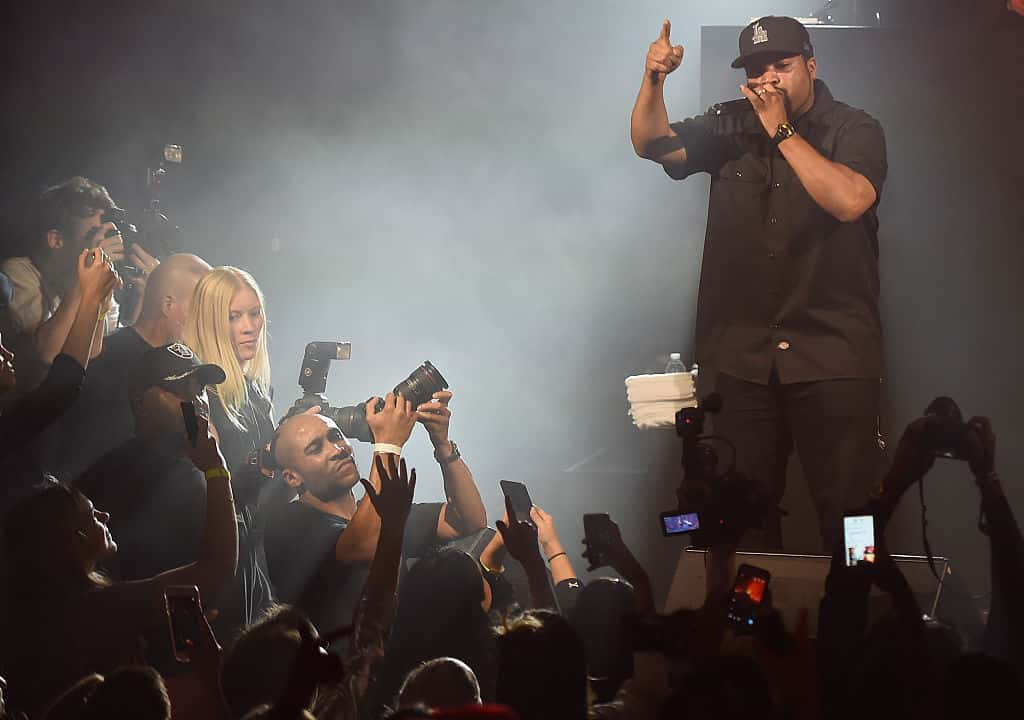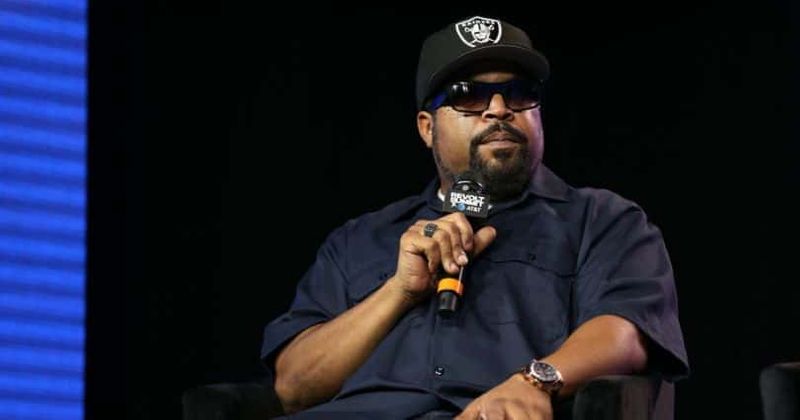O’Shea Jackson Sr., better known by his stage name Ice Cube, is the latest to express his concern over the advancing A.I. technology.
Speaking exclusively on Full Send Podcast about the recent developments in the music industry brought about by auto-tune, he said, “The artists are getting lost in auto-tunes, and now that you have an A.I. computer. I think people don’t want a computerized rapper anymore. They want to hear your voice. I don’t know any rappers by their voices no more. I used to know all the rappers just to hear their voices. Know who that is (sic).”
He continued by calling A.I. ‘demonic.’ “So, I think they need to figure out how to put that auto-tune down, and we need to hear what people sound like and if they’re as good. Because I think A.I. is demonic. I think A.I. is gonna get a backlash from real people — real, organic people. So, I think artists need to go back to using their real voice and making sure people know this is authentic and not made from a computer.”
Hosts Kyle Forgeard and Jesse Sebastiani then discussed that A.I. music artists are popular on TikTok to which Ice Cube replied, “I think that’s terrible. I don’t wanna hear an A.I. Drake song. He should sue whoever made it.”
Fox News reports that the prolific rapper is referring to the recent A.I. controversy surrounding the A.I.-generated song titled “Heart on My Sleeve,” which was made by cloning Drake and The Weeknd’s voices. The song was created by @GhostWriter on TikTok and had gone viral in April through multiple videos shared on social media. “Somebody can’t take your original voice and manipulate it without having to pay,” Ice Cube added.

Explaining the legal consequences of “cloning” music, Ice Cube said, “To me, it’s like sampling, and you know if I steal somebody’s baseline, or sample – I ain’t going to say steal, but if I don’t pay for it, that is stealing. If I sample somebody’s baseline, they can come after me. No matter how much I manipulate it in the computer, change the notes and whatever, if they recognize it and it’s a sample, they can come after me, so that’s what the artists should do.” The “It Was a Good Day” rapper also said that “the people and the platform” should be sued for distributing music in an artist’s unique style.
Bryan Rotella, managing partner and senior general counsel at GenCo Legal in Tampa revealed exclusively to Fox News that an artist’s “unique style” is not protected against copyright under U.S. law. “This comes as a surprise to many artists, but their style alone doesn’t meet the requirements for a copyright. Weird Al was able to do his parodies of songs under what’s called the Fair Use Doctrine where re-recordings of copyrighted work are allowable for criticism or comment. By adding and changing the lyrics, with a comedy overtone and layering them on top of the music composition, Weird Al was able to create literally a new type of musical genre.”
However, artists can sue on the basis of the ‘right of publicity,’ Rotella explained. “The generating of their voices by AI, though, without the artist’s consent, can be argued to violate what is called the right of publicity. The right of publicity prevents unauthorized commercial use of someone’s identity, including their likeness or other recognizable aspects of their persona.”



